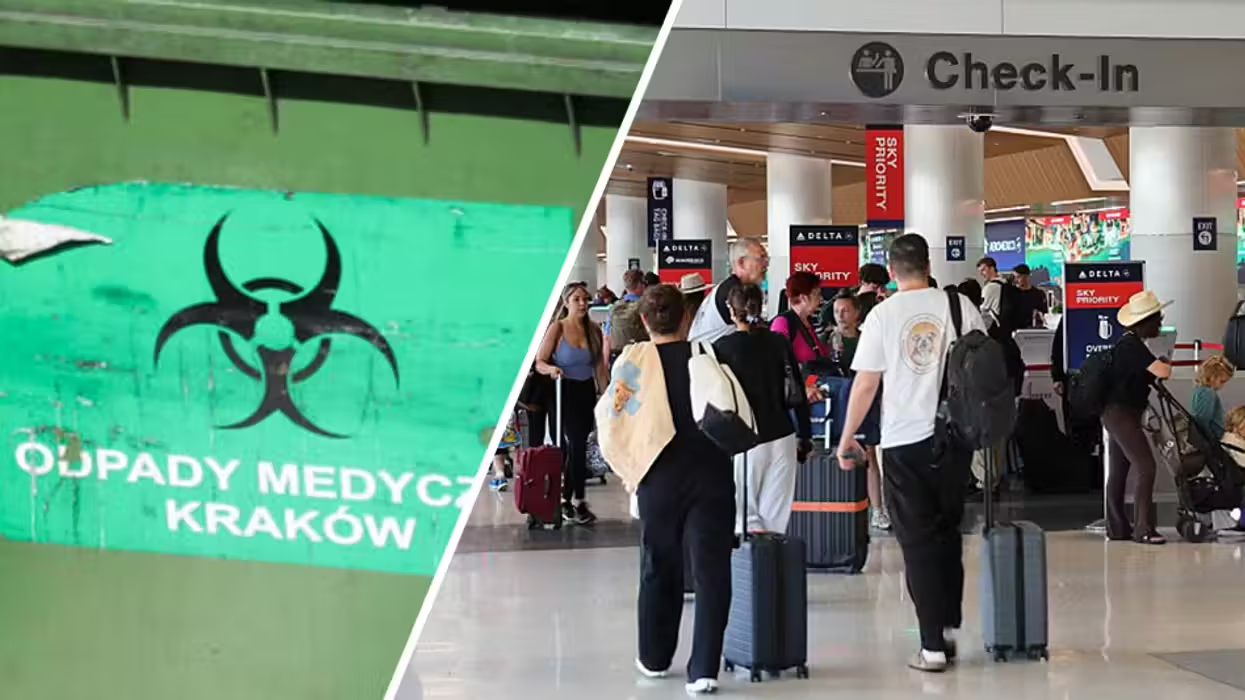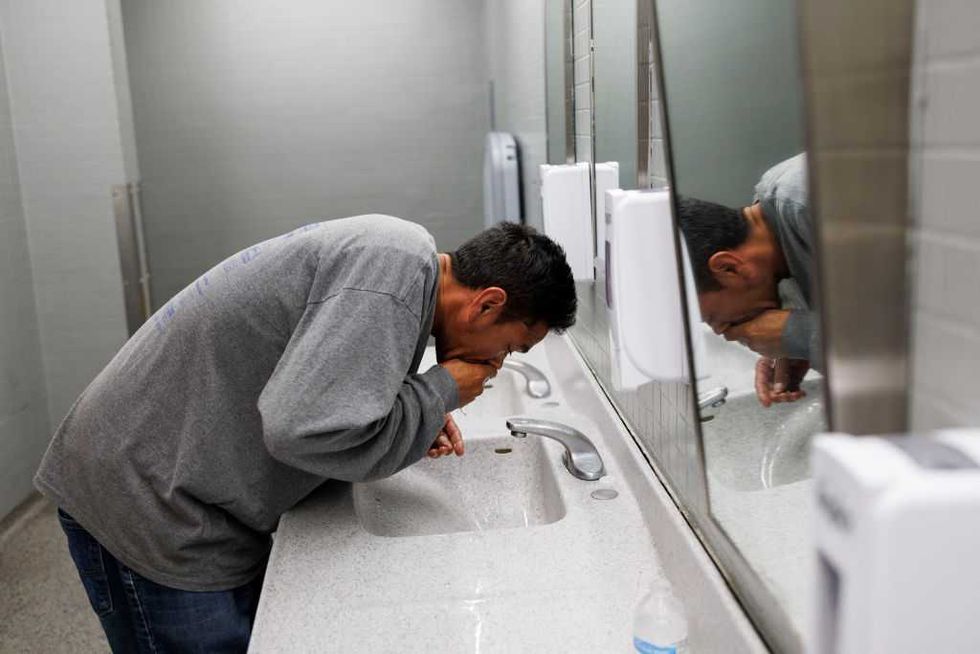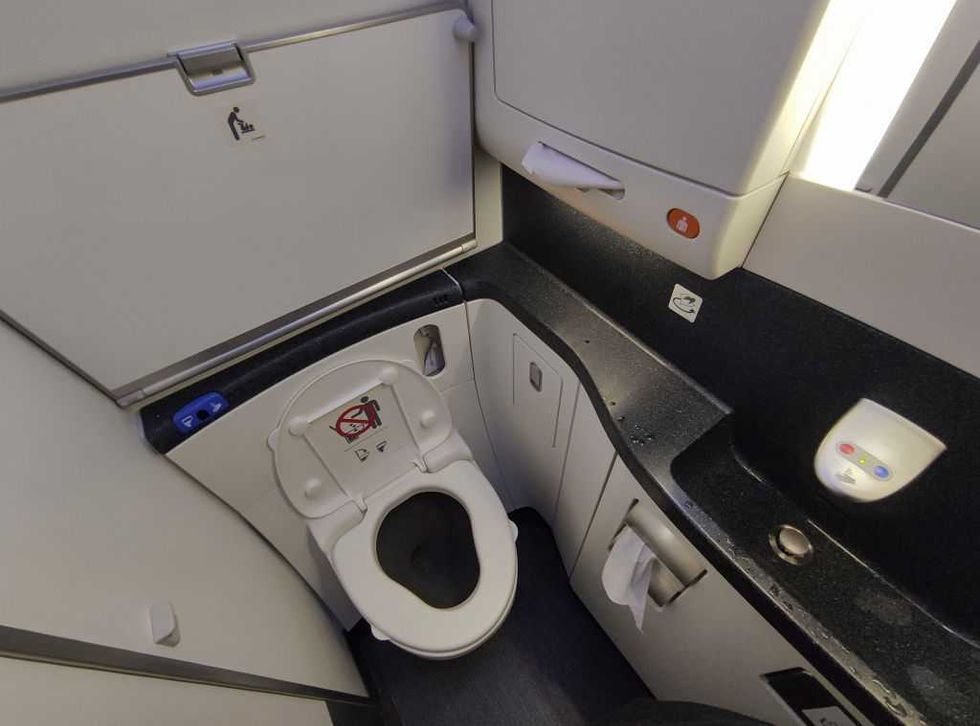
Photos by Beata Zawrzel/NurPhoto via Getty Images (L), I RYU/VCG via Getty Images (R)

The CDC is running a 'genomic surveillance' wastewater program in at least 8 US cities.
The federal government collects samples of wastewater to protect citizens from communicable diseases, it says.
The seldom-discussed operation is called the Traveler-based Genomic Surveillance program, conducted by the Centers for Disease Control and Prevention.
'... 72-hour period from collection to detection is unacceptable.'
The program is twofold; the first portion involves collecting and monitoring wastewater samples from select U.S. airports.
In San Francisco, Los Angeles, Boston, New York City (JFK), and Washington D.C. (IAD), either airplane wastewater or airport bathroom wastewater is collected. In other cities like Newark (EWR), Miami, and Seattle, only nasal swab samples are collected from willing international travelers.
The CDC explains that samples are shipped to a laboratory for "digital polymerase chain reaction (dPCR)" testing to ensure there are no pathogens that are of concern to public health. Samples that do have certain pathogens undergo sequencing to determine variants, strains, or mutations that could be dangerous.
"Basically, if you use the washroom on a plane, they'll pull the material from the plane; the fecal matter and the urine, and we can actually run that through a device that can actually sequence it and detect the presence of a threat or whatever viral material you might have shed," Jake Adler, CEO at Pilgrim Labs, told Blaze News.
Adler, the biodefense entrepreneur behind the clay-based hemostatic dressing Kingsfoil, described the program as largely ineffective, however, that is mostly due to the sheer time it takes for the samples to make it to labs for analysis.
RELATED: Biotech founder sliced open his own legs on camera to prove his product is safe for US troops

"They're going to be pulling the wastewater, or basically the material from the bathroom, and then bringing that to a local laboratory and monitoring for the presence of viruses," Adler detailed.
"That means they have to drive roughly four hours to each portable sampling unit — which we have, I think, close to 3,000 or 3,500 across the country ... then they do the testing and then 72 hours later we know whether or not we've detected a threat. Now obviously, a 72-hour period from collection to detection is unacceptable," the CEO explained.
Adler has a solution, however. The biotech expert said he is working on a chemical threat detection system that will not only work for military operations, but would have domestic implementations, as well.
RELATED: Chinese informant allegedly alerted FBI to Wuhan lab leak in early 2020: Report

Calling it Argus, Adler described the program as a "next-generation, fully autonomous and near real-time bio-surveillance platform" that detects the presence of bio-aerosols, viruses, and pathogenic bacteria in the air.
This would massively cut down on the time it takes to identify a threat, Adler told Blaze News. In airports especially, tracking the presence of viruses in the air for "real-time sequencing and analysis" to understand how the virus could spread through the population via movement patterns would be a game changer.
Adler strongly affirmed that any product released through his company would not only be safe, but it would have to be something he was willing to experience himself.
That is why, when he released Kingsfoil, the biotech entrepreneur was willing to cut his own leg open in order to showcase the product.
"I'm a human, right? So I am a relevant model," he said about testing the product on himself. Shockingly, Adler said that he has already told his team that he intends to "probably do it again, as needed."
Like Blaze News? Bypass the censors, sign up for our newsletters, and get stories like this direct to your inbox. Sign up here!
Andrew Chapados